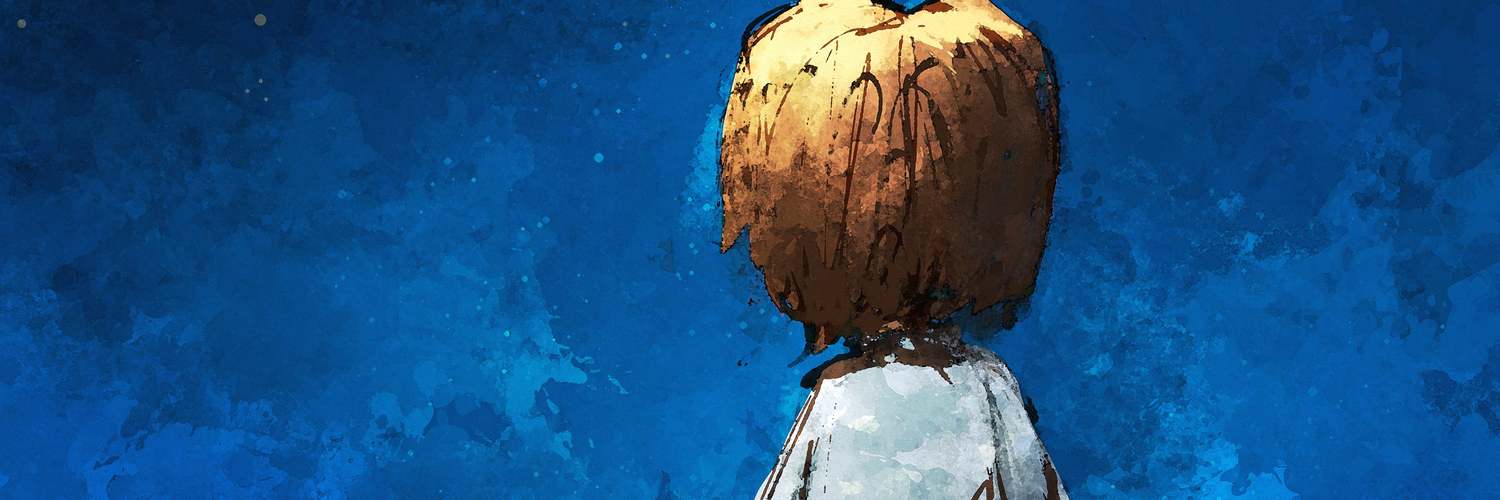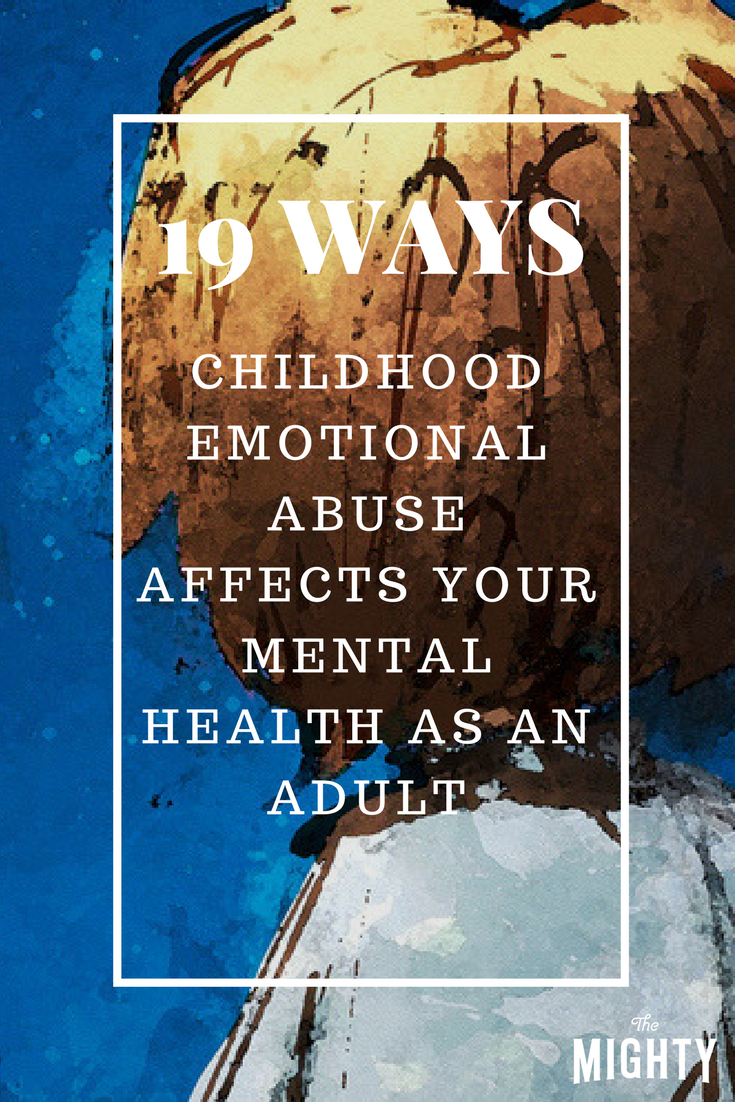Experiencing emotional abuse in the formative years of childhood can be incredibly damaging to a child’s mental health. Unfortunately, the effects of early emotional abuse often do not stay confined to the period of time when they occurred. The effects can be debilitating and far-reaching, often creeping into adult life in ways we may not expect — much less want.
What happens exactly when emotional abuse from childhood follows you into adulthood? And what happens if your experiences contributed to a present struggle with mental illness?
We wanted to know the effects of experiencing childhood emotional abuse, so we asked our mental health community to share how emotional abuse in their upbringing affects their present mental health.
If your experience with childhood emotional abuse has contributed to challenges you face now, please know help is available.
Here’s what they shared with us:
1. “[I have] very low self-confidence, [have been in] toxic relationships [and experience the] feeling of being never enough… Currently I’m battling with depression and eating disorders.”
2. “I overanalyze every situation, what I did wrong and what I could’ve done better. My self-esteem is shot, my self-confidence is minimal. I question people’s intentions about everything and have a difficult time trusting others because of it, which causes extreme anxiety quite often.”
3. “When I get yelled at, I start to panic and will sometimes have a panic attack. This is mostly because my mother was unstable when I was young and would yell at me very often… It definitely attributed to my anxiety today.”
4. “I can’t do anything without apologizing for it. I’m constantly fearful of and waiting for people to abandon me. The constant anxiety makes me physically sick. If someone seems even the slightest bit annoyed or disappointed in me, I burst into tears. I feel deeply emotionally attached to anyone that offers me any emotional comfort, as if it can make up for what I’ve lost.”
5. “On top of emotional abuse, I was also sexually abused, so that probably has compounded my problems. I had very low self-esteem, trust issues, eating disorders, feelings of worthlessness, [I] obsessed with perfection, [had] anxiety, depression [and] suicidal ideation and [also] abused alcohol — all of which carried over into my adult years… I have made great strides in the past five years or so. I no longer use alcohol to cope and I have gotten out of a toxic marriage. Some days are worse than others, but for the most part, I have learned how to cope with everything in healthy ways. I still deal with not feeling like I am good enough and I second guess myself a lot. Some days I need more reassurance. When the bad days come and anxiety or depression creep in, I know it won’t be around forever. My faith in God and my church family have been instrumental in my growth and healing. I know my worth now, even if I sometimes need reminding of it. My past still affects me, but I no longer allow it to define me.”
6. “I can’t trust anyone. I internalized it and learned to hate myself. I learned to believe all the things they said about me. I have anger issues. I can’t get close to anyone. I fear being around people. As a result of it all I can’t work. I live with almost constant anxiety.”
7. “I have anxiety and depression now. I have to know why things don’t go as planned. I obsess over closure of situations and it makes being a mom and spouse very difficult.”
8. “[I] still think everything is my fault. The guilt, the shame, the low self-esteem. Nothing I do can be good enough. I struggle with OCD, anxiety, depression and I’m in eating disorder recovery. As an adult, it’s definitely easier to connect some dots (which I consider a positive), leading to at least understanding why I am the way I am.”
9. “I’m still figuring it out. [For me,] child abuse [has made] cognitive development detached from society and finding healthy boundaries a work in progress. Delusions knock at [my] door all the time.”
10. “College is extremely hard for me to get through, mentally. I am constantly feeling like I am not smart or capable enough, and am in constant fear that I will not graduate. I feel like my anxiety and depression have really kept me from enjoying the college experience fully, and kept me from making use of the opportunities around me. I’m in my third year and I still fear I chose the wrong major, and that I am not doing enough. College is hard enough, but with a mind like this… it truly feels nearly impossible.”
11. “I never wanted to admit to myself that my parents’ behavior and the environment in which I was raised had any effect on me as an adult. I did not want to give them any sort of power over me anymore… Only now can I relate my panic disorder to my childhood. My childhood was living in fear in the place where a child should feel safe and loved. I was made to feel unwanted and unworthy and basically, in the way. As I type this, I can feel my brain starting to spin out of control and my heart beating into my throat. It’s sad that I still feel unworthy of anything in my life.”
12. “I looked for love and attention in all the wrong places. I didn’t get love and attention at home so I looked for it in relationships and when they didn’t go well, I was devastated. I thought about all the things I did wrong. I developed depression and didn’t do much to get help because I thought I deserved it.”
13. “I can’t work due to the amount of hallucinations and stress vomiting that happens when I’m under stress. Living is stressful, eating is stressful, sleeping is stressful. I feel like there’s a threatening presence only I can feel… I have paranoia often, making it hard to leave the house. [I have an] eating disorder that has been present since childhood. [I go to] lots of doctor visits and [am on] different medications. It’s hard to know who you are when there’s so much pain blocking the joy. But I press on, and encourage others to do the same.”
14. “I stay between fight, flight and frozen. In many situations, I’m often anxious beyond typical ‘nervousness.’ I’ll stay guarded even around [people] I’ve been around for years.”
15. “I have no self-confidence, I have BPD and am a mother myself, now. I find myself second guessing my parenting and try my hardest not to repeat the past.”
16. “I don’t reach out for help, although medical issues make it a necessity. I don’t feel as if I am worth the help, or that people will berate me. [I’m] always on edge, waiting for the next verbal barrage.”
17. “I have serious trust issues, and I am unable to completely relax or know anything about what I would like to be at 60 [years old]. I have literally no clue who I am, and I am sometimes really mean or quick with words when I should not be. [It is] to the extent that it is causing me serious health issues now, too. I am scared of me.”
18. “[I struggle with] low self-esteem, developed an anxiety disorder [and] BPD, and [feel] the need to constantly seek validation in everything I do. It took me a while to realize the connection to emotional abuse from childhood, and this community has been so affirming.”
19. “I’m always waiting for the other shoe to drop. Trusting in stability is a struggle for me, and I’m constantly second-guessing myself. I’m very self-critical and have worked extremely hard to change my internal narrative to something more positive. I’ve had to learn how to be kind to myself, and understand I am not a bad person — that I deserve to love and be loved. I [have] an anxiety disorder and OCD, as well as mild PTSD.”
If you or a loved one is affected by sexual abuse or assault and need help, call the National Sexual Assault Telephone Hotline at 1-800-656-4673 to be connected with a trained staff member from a sexual assault service provider in your area. You can also visit our suicide prevention resources page. If you need support right now, call the National Suicide Prevention Lifeline at 1-800-273-8255 or text “START” to 741-741.
Thinkstock photo via Archv.


